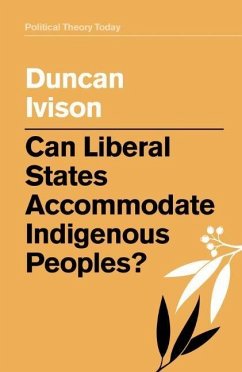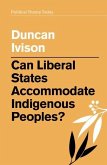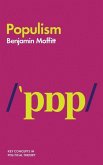The original - and often continuing - sin of countries with a settler colonial past is their brutal treatment of indigenous peoples. This challenging legacy continues to confront modern liberal democracies ranging from the USA and Canada to Australia, New Zealand and beyond.
Duncan Ivison's book considers how these states can justly accommodate indigenous populations today. He shows how indigenous movements have gained prominence in the past decade, driving both domestic and international campaigns for change. He examines how the claims made by these movements challenge liberal conceptions of the state, rights, political community, identity and legitimacy. Interweaving a lucid introduction to the debates with his own original argument, he contends that we need to move beyond complaints about the 'politics of identity' and towards a more historically and theoretically nuanced liberalism better suited to our times.
This book will be a key resource for students and scholars interested in political theory, historic injustice, Indigenous studies and the history of political thought.
Duncan Ivison's book considers how these states can justly accommodate indigenous populations today. He shows how indigenous movements have gained prominence in the past decade, driving both domestic and international campaigns for change. He examines how the claims made by these movements challenge liberal conceptions of the state, rights, political community, identity and legitimacy. Interweaving a lucid introduction to the debates with his own original argument, he contends that we need to move beyond complaints about the 'politics of identity' and towards a more historically and theoretically nuanced liberalism better suited to our times.
This book will be a key resource for students and scholars interested in political theory, historic injustice, Indigenous studies and the history of political thought.
'In this refreshingly clear and succinct book, Duncan Ivison argues against views of Indigenous rights that erroneously presuppose the legitimacy of the liberal state's unilateral assertion of sovereignty over Indigenous peoples. A must-read for political theorists.'
Melissa S. Williams, University of Toronto
'This important work takes the historical and present injustices inflicted on Indigenous peoples seriously and presents one of the best liberal responses to them.'
James Tully, University of Victoria, Australia
Melissa S. Williams, University of Toronto
'This important work takes the historical and present injustices inflicted on Indigenous peoples seriously and presents one of the best liberal responses to them.'
James Tully, University of Victoria, Australia








